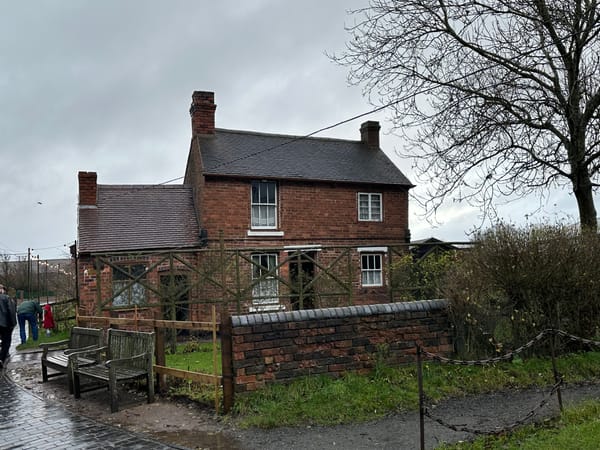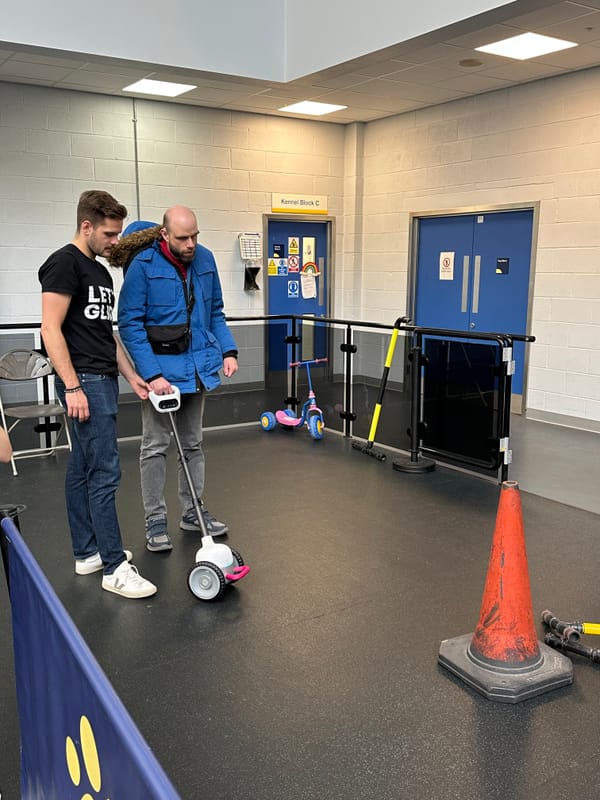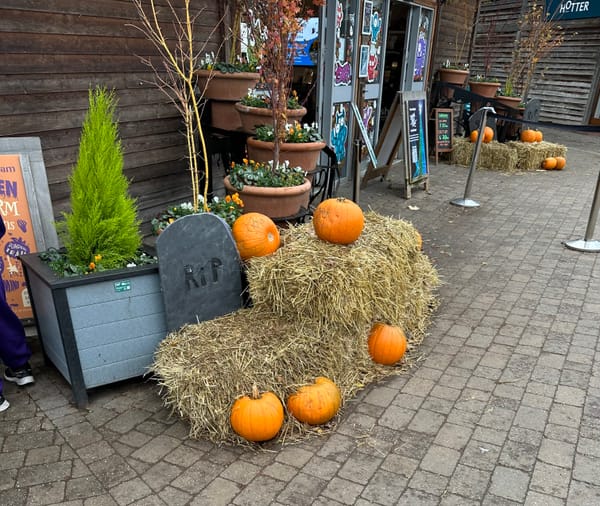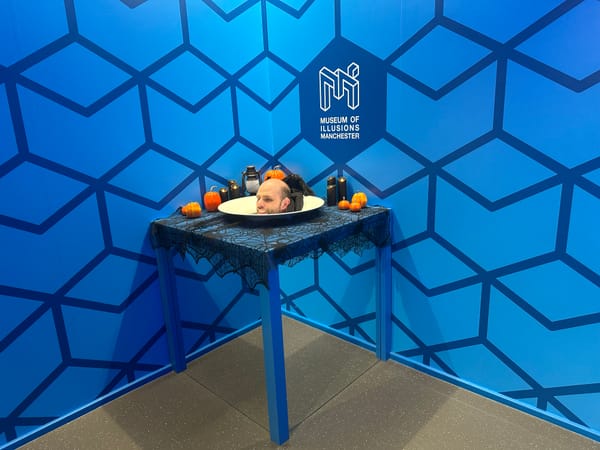Autism and George
This is George's story with autism.

In this post I'm going to be talking about George and his autism. I'll just add in that I have asked for, and received, his permission to write this post. I'll also say that I'm aware that autism is a spectrum and different people are affected in different ways. There is also some overlap between the way in which autism, dyspraxia and Ehlers-Danlos Syndrome present themselves, so it's not always this issue is because of autism or EDS etc, but they are part of who George is.
The First Twelve Months
It was a nurse who first noticed that George wasn't reaching his expected milestones when he was a baby. At first, we put it down to the fact he had been delivered prematurely, but as he got closer to 12 months old, it became obvious it was more than that. He never crawled as a baby, which we were later told is common with EDS, and when he pulled himself up to try and stand, his ankles would roll so that he was standing on the inside of his feet, which looked really uncomfortable and painful. It was at this point we were referred to a paediatrician, and a whole raft of appointments and tests happened.
Early Years at Nursery
At one year old George started going to nursery school, as my maternity leave had ended and it was time for me to return to work. It was there, when George was around other children of a similar age, that the differences really started to become noticeable. He went to that nursery until he was four years old, when he left to start Reception class at primary school. He was completely non-verbal at nursery and used to have a speech and language therapist go in to work with him. His nursery was in a different local authority area to the one where we live and where he would be going to school, so before he left he was assessed by both local authorities, at nursery, to determine the support he would need at primary school. As his mum, reading both of those reports broke my heart.
Transition to Primary School
To help with George's transition to primary school, the Reception class teacher that he was going to have there came and spent the day at George's nursery. It gave her a chance to meet him, so she'd know who he was, and it was a chance for George to meet her in a familiar environment. The next stage was for George to spend a few hours in the Reception class at primary school, with me there with him. Finally, George spent a few hours in the Reception class with the other children who would be his new classmates. It was hoped that this might make the transition from nursery to primary school a bit easier for him.
Early Years in Primary School
When George started primary school he was still non-verbal. He was going to SALT (Speech and Language Therapy) once a week. One of the Reception class teachers came along to a couple of George's appointments, so they could practice the exercises at school, and I helped George to practice them at home. Eventually, he started to talk with simple two/three word sentences and progressed quite rapidly from that point. It wasn't too long before he became the chatterbox that we know and love 😄
However, George was really struggling with primary school. It was a lot bigger than nursery and there were a lot more children. He got lost trying to find the toilet that was almost opposite the classroom door, so someone always had to go with him. Another issue was that some of the children in his class could be less than kind, and he would lash out in frustration. He also struggled with a lot of the classroom routines.
The school paid for an educational psychologist to come and evaluate George and she recommended some intensive support for him, for Year 1. This was put into place and paid for by the school. With the 1 to 1 support that he had, he really blossomed in Year 1 and made fantastic progress.
The Diagnosis
It was at around this time, when George was 5 years old, that his paediatrician referred him to tested for autism. The ADOS (Autism Diagnostic Observation Schedule) assessment took place over a period of around five to six months. I had a questionnaire to complete and then took George to his first appointment. Then I had an appointment with them by myself. After that, someone from the team went to observe George in school for the morning. Following on from that George had an appointment by himself, while I waited in the waiting area. Once all this had been done, a report was compiled and I had another appointment with the team. They told me that their observations had matched what I had written on the questionnaire, and with what George's teacher had told them. This was when I was told he was on the autism spectrum.
I don't know how this feels for other parents, but for me it almost felt like they were saying, "Congratulations! Your child has autism! Goodbye!" There were some courses I could go on, and I did, but I didn't find them particularly helpful. As I have mentioned previously; autism is a spectrum and every individual is different. What works for one person may not work for someone else.
Applying for a Statement of Special Educational Needs
In Year 2, the support that George had in Year 1 was withdrawn, as the school could no longer afford to keep paying for it, and George's progress went down as he struggled without the extra support.
This was the point where I decided to apply to the local authority for assessment for a Statement of Special Educational Needs (the precursor to the EHCP that is currently used). The school were not happy that I had done this, but supported my application anyway.
Fortunately, the local authority agreed to do the assessment and what turned out to be quite a long winded process began. An educational psychologist came and assessed George in school and made her report recommending that a Statement of Special Educational Needs be issued for George. This was issued but didn't take effect until George started Year 3.
The Remaining Time in Primary School
George's Statement made a lot of difference for him as he got the extra support he needed. He was given two to one support and, although he was still behind his peers academically, he flourished with the extra support. There were still issues with some of his classmates though. Some of them knew exactly which buttons to press with George to cause a meltdown and attack the perpetrator, and they would hammer those buttons. I happened to be in school on one of those occasions and saw two members of staff carrying George kicking and screaming out of the classroom. One member of staff was holding George's legs, so he couldn't kick, and the other held him under the arms. It was quite upsetting for me to see that.
As an aside, when this happened George was always made to say sorry to the perpetrator. As a result, he will not say sorry at all now. He was once able to tell me that this was because at school, it always seemed to be him saying sorry to someone who had deliberately upset him, but they never said sorry to him.
Preparing for Secondary School
When George was in Year 4, the school SENCO (Special Educational Needs Co-ordinator) told me that although secondary school didn't begin until Year 7, now was the time to start looking for a school because of George's additional needs. Her personal view was that a special school, that was in a different local authority area, would be perfect for George. He would get the support he needed and also be able to do some GCSEs and other Level 2 qualifications.
Our local authority disagreed with her, more than likely because special school costs a lot more money than mainstream and an out-of-area school is also more expensive. Our local authority argued that George could manage, with support, in a mainstream secondary school in our local authority area. They gave me a list of schools that they thought were suitable, and I made an appointment to go and view every single one of them, as well as the school that the SENCO recommended. When I visited the school the SENCO recommended, I understood her reasoning and I agreed with her that it would be a great fit for George.
Once I had visited every school, I wrote down what it was I thought they did well and what they did that wasn't so good, in my opinion, and sent that to our local authority. Doing this made a really strong case for the out-of-area special school, which the local authority ended up agreeing to pay for.
Secondary School
With George going to a special school for his secondary education, the school itself was much smaller than his primary school and the class sizes were much smaller.
Making the case for George to go there was absolutely the best decision because he thrived there and made excellent academic progress. He was also encouraged to pursue his interest in computing. As he got older, the meltdowns happened less too.
Before he reached the age of 16, we contemplated him going to mainstream college. We made arrangements to go and visit, and made sure that they were aware George had an EHCP (Education Health and Care Plan), which had replaced George's Statement when he was in Year 9. The college itself was brilliant, but unfortunately it was just too much for George, when he was used to his small special school.
Special Needs College
In the end George went to a special needs college. The intention was for him to just go for a year to provide a kind of transition between special school and mainstream college. Unfortunately, we had the covid lockdowns at this time, so the one year at the special needs college turned into three years.
By the end of the three years, George was just coasting along as he wasn't being stretched academically. Personally, I wish that George had the opportunity to learn some independent living skills during his third year, but it wasn't to be. I arranged to go and view the mainstream college with George again. This time the visit went much better and George was quite excited by the prospect of going there and doing a Level 3 qualification in computing.
Mainstream College
George was 19 when he started at mainstream college. I had encouraged him to look at the Extended BTEC Level 3 in Computing and he decided that he would like to do that.
He worked very hard doing this qualification because it was a topic that interests him, and he ended up achieving distinction* distinction distinction!
We had gone to some open days at different universities as he thought he might like to do a computing degree, but he found the universities a bit too big and chaotic for him. Fortunately, the college he was at also does HNC and HND qualifications in computing. The HNC and HND are equivalent to the first and second year of university, so he has decided to stay at college and do those qualifications and then look at university to do a top-up degree.
Away from the Academic Side
Academically, George's progress has been fantastic, especially when we look back at how he struggled when he was younger. However, he still has difficulties in other areas. He's not in a position where he could live on his own. Even if he's hungry and thirsty he will not get himself a snack or a drink. He only eats if he's told it's time to eat. He has no idea about what clothes to wear and still relies on me to choose them for him. He doesn't go out by himself and likes to be close to me, as much as he can. There are a whole raft of areas where George doesn't behave as you'd expect a typical 21 year old man to act.
Light at the End of the Tunnel?
For me, the light at the end of the tunnel is the fabulous academic progress that George has made. I think if I'd had a crystal ball, when George was very young, and I could see what George would end up doing, I might have worried less about him from that aspect. However, I have to bear in mind that George is studying a subject that he's very interested in. With subjects he's not interested in, he wouldn't have made the same progress.
I also have to bear in mind that George still has difficulties socially, with people he doesn't know, and he doesn't always know what behaviours are socially acceptable. Ever since he began talking, he's had quite a "flat" way of speaking, and that's still the case now. He still has learning difficulties but has found ways to make sure he can do what he wants to do.
Hopefully George will continue with his fantastic academic progress and I hope he manages some independence too.





